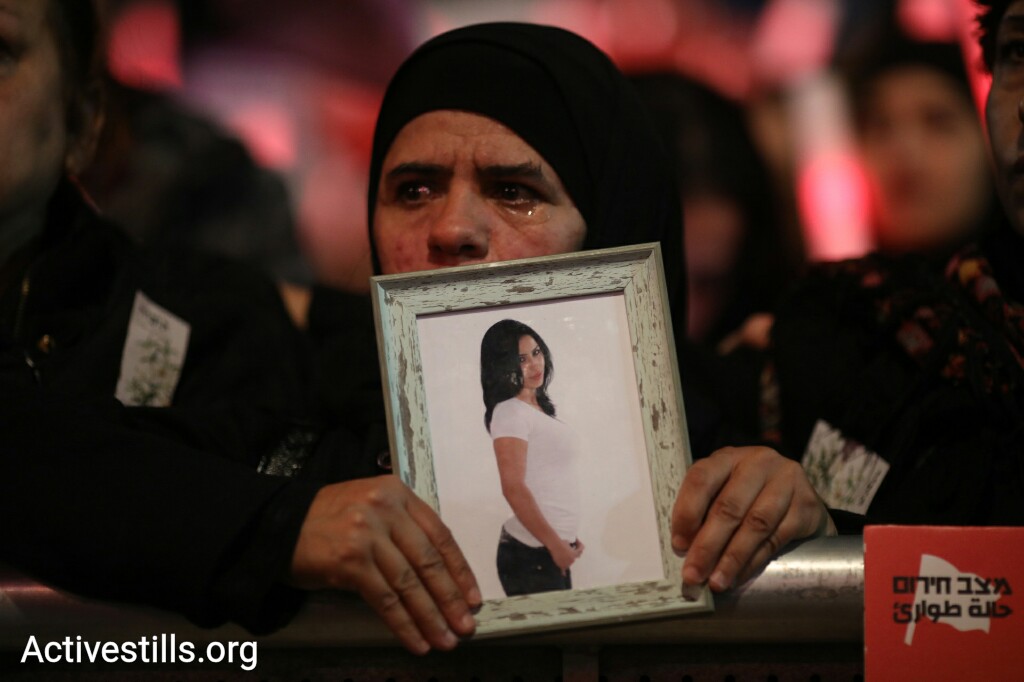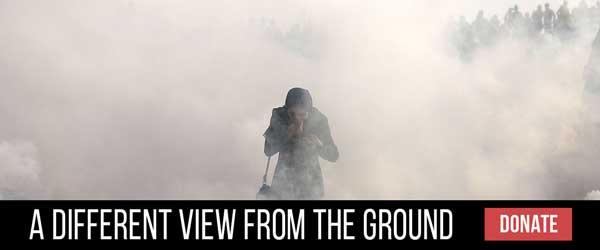As if defying gender norms in their own communities isn’t enough, Palestinian women are forced to fight prejudices and racism masking themselves as feminism in Israel and the West.
By Anwar Mhajne

Tens of thousands of women protested against gender violence in Israel earlier this month, demanding the allocation of more resources to combat it. The protests came a week after the murders of two girls, 16-year-old Yara Ayoub from the village of Jish, and 13-year-old Silvana Tsegai from Tel Aviv. This week, another woman, Eman Ahmad Awad, was found stabbed to death in her home in Acre. She was the 25th victim of gender violence in Israel this year.
I am a Palestinian citizen of Israel, from a Muslim family, and I have experienced first-hand the social restrictions women in our society face. But I also regularly witness how violence against women is used by Israelis to legitimize racism against the Palestinian community and to discredit our politicians, who are criticized for prioritizing Palestinian issues over domestic ones, as if the two are disconnected. In reality, we, Palestinian women, experience violence and are being silenced on all levels — locally, nationally, and internationally.
As a graduate student and now teaching fellow in the United States, I have learned that talking about gender in the Middle East with non-Arabs, or writing about it in English, is often used to affirm the prejudices that Westerners hold about Arab and Muslim men. In conversations on gender, people are suddenly comfortable revealing their misconceptions and criticizing those “backwards Arabs” and Muslims. (The two are often conflated.)
In the West, everything I do as an individual from the Middle East is considered to be a representation of my entire culture. Whether I want to or not, I have become the spokesperson of not only my community but also my wider ethnic and religious groups.
I switched from pursuing an education in the sciences to a focus on gender studies in order to discuss and promote women’s rights in my community. Instead, I find myself constantly answering questions that assume Western superiority, particularly when it comes to women’s issues. I’ve been asked whether I have to cover my hair or dress differently when I am back home in Umm al-Fahm, for example. I’ve had to tackle comments like, “Arabs hate science” and “they don’t utilize the talent of their women.” I am forced to defend my mother’s decision to wear a veil.
These challenges are not necessarily unique to us Palestinians; we share them with many Muslim women and women of color in the West. However, Palestinian women are stuck between a rock and a hard place. Critiques of our community are often weaponized by pro-Israel and conservative groups. As a result, meaningful gender-related criticisms are silenced inside the community, prompting accusations of airing out our dirty laundry, lest it be used against us.
The unique position as Palestinians living in Israel is an added complication. Last year, a Palestinian woman from Israel who runs an organization working to eliminate violence against women in the Arab community asked me to connect her with an international NGO that focuses on similar issues. The international organization refused to work with her because they don’t work with any organization “operating in Israel” — even though the local NGO was focused on the Palestinian community, it was disqualified because it was based in Israel.
These questions and comments vilify Muslims and Arabs, and justify oppressive policies toward communities of color. They disregard the fact that violence against women is a global issue, and that patriarchy is not limited to one geographical location, religion, or ethnicity.
Dr. Anwar Mhajne is a Palestinian citizen of Israel. She is an Umm Al Fahem native, but moved to the United States in 2011 to pursue her M.A. and later her Ph.D. Anwar is currently a Postdoctoral Teaching Fellow in the Department of Political Science at Stonehill College, MA. Twitter: @mhajneam.

